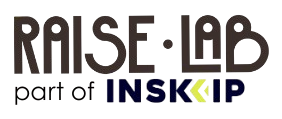Increased temperatures, recurrent episodes of drought and the intensity of heat waves... The effects of climate change are impacting the real estate sector, which must anticipate these risks for sustainable and resilient homes.
In this context, CDC Habitat has implemented a Strategic Climate Plan aimed at mitigating our carbon footprint, guaranteeing the comfort and safety of tenants by improving the resilience of our park in the face of climate hazards, and at maintaining biodiversity. An approach that is part of the necessary mobilization of all actors in order to limit global warming to 1.5°C by 2050.
As part of its approach toOpen Innovation, the Group called on RaiseLab to source a panel of innovative solutions to improve the summer comfort of its users and meet the challenges of thermal efficiency, costs and large-scale deployment at the same time. Following research and exchanges with relevant companies, RaiseLab identified around thirty startups and organized discussions with 8 of them.
This approach allowed CDC Habitat to collaborate with two startups as part of the Sunroof project on the issue of albedo with the application of reflective paints and roof coatings to reduce heat islands and improve the summer comfort of tenants.
“Committed to an approach to improving the resilience of the territory in the face of climate change, these projects co-developed with startups with the help of RaiseLab, make it possible to contribute to the resilience of urban ecosystems and, more generally, of the cities themselves. These experiments with reflective roof paints, in Occitanie and PACAC, are the result of the Group's Open Innovation approach and aim to strengthen innovation to adapt residences and change the behavior of tenants (no use of air conditioning).” underlines Clotilde Saint Hilaire, Director of Mission Innovation at CDC Habitat.


.jpg)

